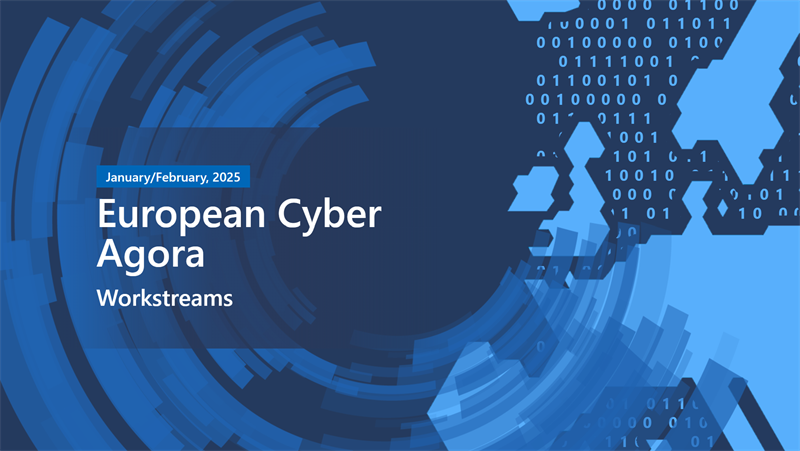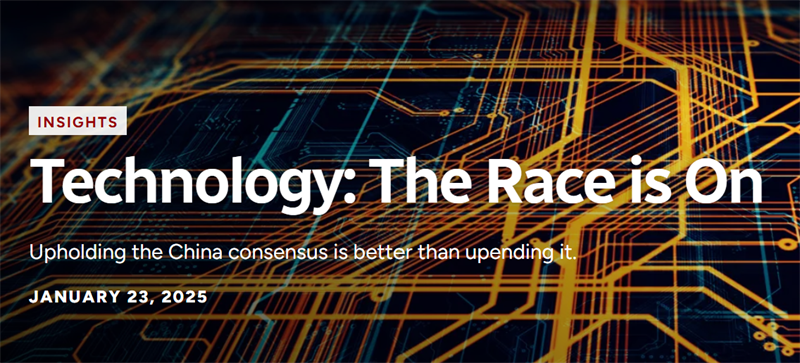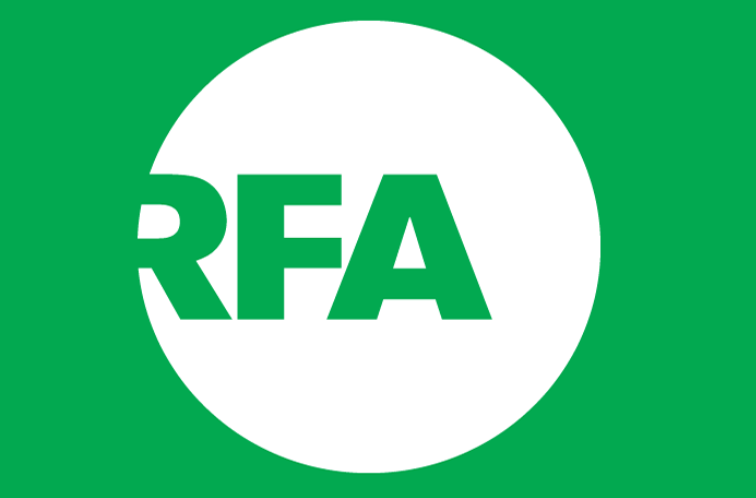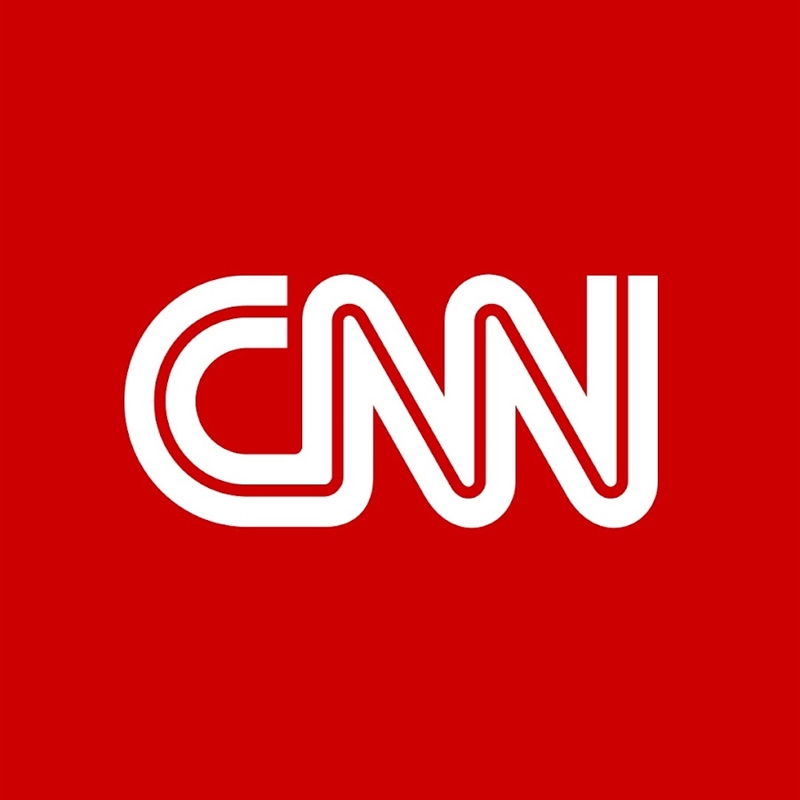TransatlanTech Insider—February 2025 Edition
Welcome to the February edition of the TransatlanTech Insider.
In the first month of Trump’s second presidency, technology, the move-fast-and-break-things tech culture, and the “transatlantech” relationship have been at the heart of the upheaval. Elon Musk and his DOGE team are now running his Twitter-to-X playbook in Washington, taking aim at the federal workforce in an effort to bring Silicon Valley-style disruption to the capital. In addition to numerous conflict-of-interest concerns surrounding the tech billionaire’s federal contracts and investigations into his companies, the effort to axe US government programs—from Department of Energy nuclear weapons scientists to life-saving biomedical research at NIH and the entirety of USAID—risks setting US technology competitiveness and foreign policy back years. Still alive, at least for now, there seem to be efforts to control high-end AI chip sales to China, as investors and policymakers react to Chinese upstart DeepSeek AI, whose large language model, unlike those of major US champions, was put out as open source.
America’s European allies got a bitter taste of the rocky road ahead in successive appearances by Vice President J.D. Vance at the Paris AI Action Summit and the Munich Security Conference. Having previously floated the idea of conditioning US support for NATO on Europe’s non-enforcement of signature tech legislation, Vance praised the “deregulatory flavor” of the summit and bluntly cautioned against “ideological bias”. In Munich, he shocked allies by claiming that “shutting down” alternative viewpoints was a larger threat to European democracy than were Russia and China. For its part, Europe is wasting no time building out its own competitiveness compass with innovation at its heart. Venture capital support for European startups in defense and security tech surged to the tune of $5.2 billion in 2024, and at the AI Action Summit, Commission President Ursula von der Leyen announced a new effort to mobilize $200 billion in European AI investment. As Ukrainian President Volodymyr Zelensky observed in Munich, “The old days are over when America supported Europe just because it always had.”
In this month’s newsletter, GMF Technology shares the first workshop in its 2025 European Cyber Agora programming, details foreign policy memo recommendations for the new US administration, and provides insider reactions to key technology developments and news. Subscribe to receive future newsletter editions, follow us on X, and visit our webpage to learn more.
Featured this Month

GMF Hosts the European Cyber Agora Workshop
On January 28, GMF hosted its first workshop in a series focused on “Societal Resilience in the Age of AI” as part of the European Cyber Agora—a flagship, multistakeholder initiative launched in 2021 by the German Marshall Fund, Microsoft, and EU Cyber Direct at the EU Institute for Security Studies (EUISS) to advance the role of the EU as a global actor in tech, cyber, and digital diplomacy. The workshop explored how artificial intelligence (AI) and generative AI serve as threat multipliers and how to address gaps in societal and cyber capacities to foster resilience. Program Manager and Fellow Julia Tréhu moderated the event, and the workshop featured GMF Technology’s Visiting Fellow Ambassador Heli Tiirmaa-Klaar as a speaker and Deputy Managing Director Astrid Ziebarth.
Lindsay Gorman featured in BBC interview on DeepSeek AI

Lindsay Gorman joined Geeta Guru Murthy on BBC News to discuss the United States’ ongoing AI competition with China in the face of the release of China’s DeepSeek R1 model. Gorman covered topics including the long-term effects of US export controls on China’s AI capabilities, the influence of Chinese government regulations on AI development, and the importance of partnership between the US and its allies to spur AI innovation.
GMF publishes recommendations in a foreign policy memo for the new administration

GMF released its “Foreign Policy Memo for the New Administration,” with analyses from experts across the organization on topics including NATO, China, Russia/Ukraine, competitiveness, technology, and US democracy. Managing Director and Senior Fellow Lindsay Gorman’s contribution to the memo, “Technology: The Race Is On,” explores technology developments in AI, biotechnology, and quantum information, as well as the fragile transatlantic consensus on the People’s Republic of China’s (PRC) tech advancement. Gorman provides 12 recommendations for the new administration to build US and allied technological power, confront the PRC tech threat head-on, and operationalize foreign policy for strategic technology goals.

Lindsay Gorman interviewed on Fox News on the rise of RedNote in the US
Lindsay Gorman was featured on Fox News in “Will Rednote Replace TikTok in the U.S.?” to discuss the Chinese social media app Xiaohongshu and the importance of comprehensive frameworks to regulate autocratic states’ apps and platforms.

Lindsay Gorman quoted in ABC News on the success of “Made in China 2025”
"Any analysis of People's Republic of China competitiveness across these 10 areas has to acknowledge that China is either a global leader or close follower in almost all of them," Lindsay Gorman said in “Made in China 2025 'hugely successful' despite US efforts to thwart plan” by Sally Brooks and Jason Fang.

Lindsay Gorman quoted in Radio Free Asia on DeepSeek and US-China AI competition
"If the United States focuses only on cutting-edge AI advancements—rather than their practical applications in industry—then China will take the lead, and that's a real risk,” Lindsay Gorman said in “The intensification of AI competition between the United States and China has challenged the existing development path” by Jingwei.

Lindsay Gorman quoted in CNN on Trump’s response to TikTok’s national security risks
ByteDance, at the behest of China, could use “this incredibly powerful tool to influence Americans at the … individual level toward certain views and certain actions,” said Lindsay Gorman in “Trump says banning TikTok won’t make Americans safer from China. He may have a point” by Clare Duffy.

Heli Tiirmaa-Klaar quoted in POLITICO on the West’s cyber strategies
“The nations who have not decided what sympathy they have on tech—whether they align themselves with the West or a more Chinese-controlled internet—they might think that the authoritarian model of cyber governance is better,” Visiting Fellow Ambassador Heli Tiirmaa-Klaar said in “Trump’s return freezes Western cyber plans to counter Russia, China” by Maggie Miller and Antoaneta Roussi.

Lindsay Gorman quoted in NBC News on RedNote’s security risks
“It’s not a foregone conclusion that RedNote will suddenly enjoy TikTok’s success and popularity,” Lindsay Gorman said in “Chinese TikTok alternative RedNote could pose greater security risks, experts say” by Kevin Collier and Kat Tenbarge. “Actually gaining the traction TikTok has is rare. And the size of the national security threat is really proportional to the size of the user base.”
Byte-Sized Bulletin
AI and Democracy
- US lawmakers introduced a bipartisan bill to ban China’s DeepSeek platform on government devices, citing espionage concerns after reports revealed that the program has the built-in capacity to send US user data to the PRC government.
- The EU began enforcing the AI Act on February 2, with prohibitions against high-risk AI systems such as social scoring and technology literacy requirements for staff of AI providers. Noncompliant companies will now face fines.
- Scale AI joined the US AI Safety Institute as a third-party evaluator for AI models, following discussions between Scale AI CEO Alexandr Wang and lawmakers on how the United States can outcompete China in AI.
- On February 10 and 11, France hosted the AI Action Summit, with US Vice President JD Vance in attendance. In his first foreign speech, Vance outlined the Trump administration’s goal to lead the AI race with American-made technology, while French President Emmanuel Macron called for AI investment as Europe positions itself as a global AI competitor alongside the US and China.
“J.D. Vance’s attendance at the Paris AI Action Summit headlined news coverage about the US delegation, but the most important detail may be who did not attend: any member of the AI Safety Institute (AISI). With Director Elizabeth Kelly’s recent departure and the Trump administration’s undoing of much of Biden’s AI policy, the status of AISI and the federal government’s approach to AI risks is unclear."
— Adrienne Goldstein, Senior Program Coordinator
- President Donald Trump and PRC Chairman Xi Jinping postponed a planned meeting in early February after the United States imposed duties on Chinese imports, prompting China to respond with export restrictions on critical metals and tariffs on US coal, natural gas, oil, agricultural machinery, and certain vehicles.
- China renewed antitrust investigations into Google for the dominance of its Android operating system and Nvidia for commitments made during its acquisition of an Israeli networking equipment company, and is considering new probes into Intel.
- Friedrich Merz, the conservative front-runner in Germany’s chancellor race, warned domestic companies against investing in the PRC in a more hardline position than those of past German administrations, including that of Olaf Scholz, who opposed EU tariffs on Chinese electric vehicles.
“With Trump floating a deal to save TikTok, including potential joint US-China government ownership, Beijing may see an opening to link technology issues into broader negotiations on tariffs and trade. By pressuring US tech firms, Chinese leaders may hope to sway Trump’s Silicon Valley advisors into pushing for concessions on key technology issues, such as easing Washington’s export controls on advanced chips."
— Dylan Welch, China Technology Analyst
- Over 35 European and US organizations urged EU Commission President Ursula von der Leyen to enforce EU laws against US Big Tech firms, fearing that ties between the Trump administration and tech titans could embolden Big Tech companies to flout EU regulations and exploit users.
- The European Commission unveiled its “Competitive Compass”, a two-year plan outlining legislation, investments, and initiatives to reverse industrial decline, reduce energy costs, and strengthen Europe’s competitiveness with the United States and China in fields such as AI, biotech, and quantum.
“US tech companies are pushing back against major EU tech regulations like the DSA, DMA, and AI Act, putting the EU on a collision course with the Trump administration. Strengthening Europe’s tech and AI sovereignty will require threading the needle of protecting fundamental rights while supporting AI development through policies to address a range of factors, from talent retention, to venture funding, and data governance.
— Julia Tréhu, Program Manager and Fellow
The Download
- Program Manager and Fellow Julia Tréhu and Deputy Managing Director Astrid Ziebarth participated in a European Cyber Agora workshop hosted by Microsoft on January 29 as part of the workstream on Cyber Accountability and Cyber Deterrence.
- Visiting Fellow Ambassador Heli Tiirmaa-Klaar co-edited “A Handbook for the Practice of Cyber Diplomacy”, a guide released on January 28 for diplomats to navigate cyber negotiations in multilateral settings.
- Ambassador Heli Tiirmaa-Klaar served on the judging panel for the Second Annual Cyber Policy Awards on February 6 in Washington, DC, presented by Microsoft and hosted by the Institute for Security and Technology in partnership with the US Chamber of Commerce.
- Ambassador Heli Tiirmaa-Klaar attended the Munich Security Conference (MSC) and the Munich Cybersecurity Conference (MCSC) on February 13 and 14.
- GMF hosted a breakfast with Google entitled “Who Will Win the Cyber and AI Innovation Race?” in Munich on February 15. The event, which featured Acting President Alexandra de Hoop Scheffer, explored strategies for ensuring transatlantic leadership in cyber defense and AI and highlighted analysis from GMF Tech’s Spitting Images Deepfakes Tracker.
The GMF Technology Program is dedicated to ensuring that democracies together win the strategic technology competition with autocrats.
Caitlin Goldenberg and Adrienne Goldstein coordinated this month’s TransatlanTech Insider.